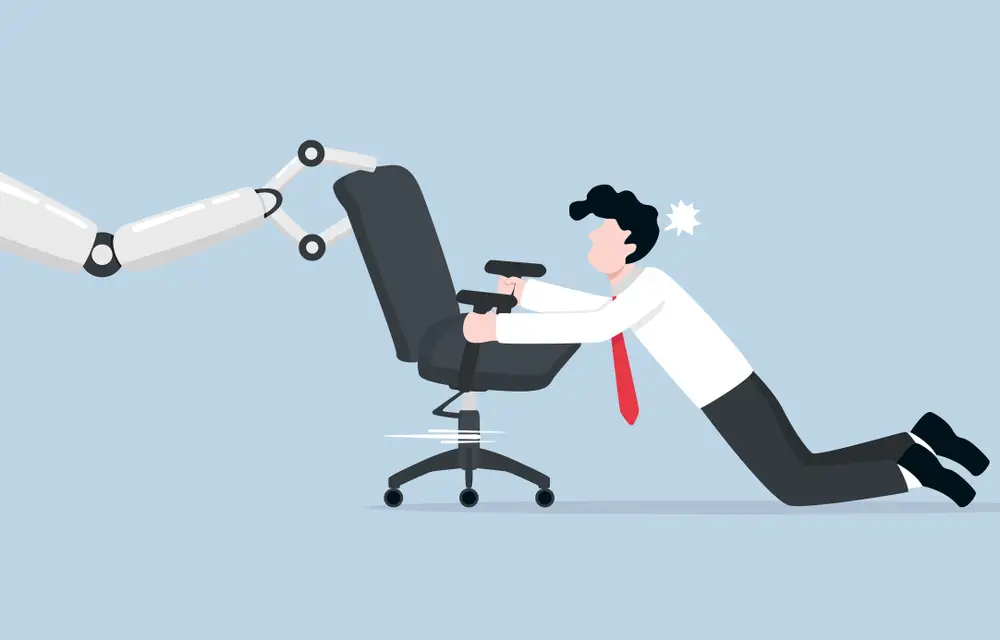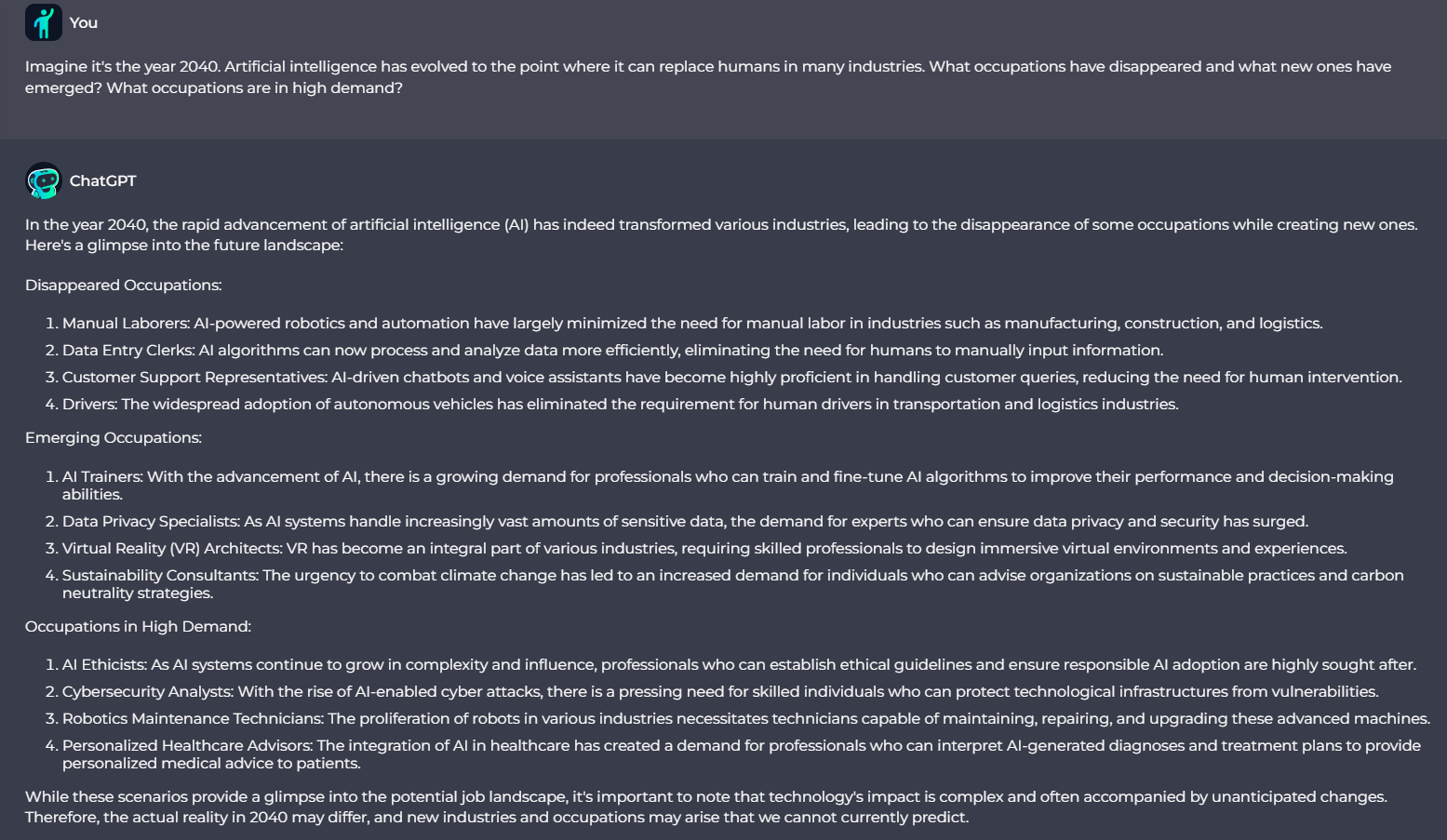Will I lose my job because of ChatGPT?
Artificial intelligence, neural networks, large language models, chatbots, including ChatGPT - this is the cutting edge of progress, mesmerizing and a little frightening. A serious concern is that the rapid adoption of technology could cause technological unemployment - the loss of jobs as people are replaced by artificial intelligence.
How real are these concerns?
Bill Gates believes that artificial intelligence will not completely supplant human labor, but will help increase its efficiency. Just as office applications have not replaced office workers, so artificial intelligence will become a new tool for humans rather than a replacement. Moreover, Gates believes it is possible to reduce the work week to 3 days by increasing labor efficiency. Whether 3 days will be paid the same as 5 days is unknown.

According to Goldman Sachs, the impact of artificial intelligence on full-time jobs could potentially affect around 300 million positions. Joseph Briggs and Devesh Kodnani, the authors of the report, suggest that approximately two-thirds of current jobs are at least partially susceptible to AI automation, while generative AI has the potential to substitute up to 25% of existing work.
The McKinsey Global Institute's research in eight countries (France, Germany, Japan, China, India, Spain, the United Kingdom, and the United States) indicates that by 2030, about 100 million workers may need to transition to different occupations.
Seo.ai goes even further, predicting that approximately 800 million jobs worldwide could be replaced by artificial intelligence by 2030. In preparation for this shift, over the next three years, more than 120 million workers are expected to undergo retraining.
Most and least exposed occupations
Different occupations are subject to computerization to different degrees: somewhere artificial intelligence will be able to take over some of the work tasks, somewhere it will be able to completely replace humans, and somewhere it will not be able to replace them at all due to the specifics of the work.
| Source | Most exposed occupations | Least exposed occupations |
| “The Future of Employment: How Susceptible are Jobs to Computerisation?” by Frey and Osborne, University of Oxford, 2013 | Data entry clerks, paralegals and legal assistants, telemarketers, loan officers, file clerks, tax preparers, motion picture projectionists, cashiers | Dentists, surgeons, clergy, athletic trainers, foresters, fashion designers, microbiologists, hydrologists, landscape architects, event planners |
| “GPTs are GPTs: An Early Look at the Labor Market Impact Potential of Large Language Models”, OpenAI, University of Pennsylvania, 2023 | Survey researchers, interpreters and translators, tax preparers, mathematicians, proofreaders, correspondence clerks, accountants and auditors | Agricultural equipment operators, athletes, cooks, derrick operators, dishwashers, stonemasons, electrical power-line installers and repairers |
| “How will Language Modelers like ChatGPT Affect Occupations and Industries?” by Felten, Raj, and Seamans, 2023 | Telemarketers, teachers, sociologists, procurement clerks, management analysts, human resources specialists, clinical, counseling, and school psychologists | Dancers, landscaping and groundskeeping workers, brickmasons, slaughterers and meat packers, fishers, dishwashers, industrial truck and tractor operators |
The studies mentioned above consider many hundreds of different occupations. The table shows only a small portion of them.
What does the future hold?
As the saying goes, when one door closes, another opens. Artificial intelligence can not only take jobs away from people, but also create new jobs. Indeed, the World Economic Forum concluded in October 2020 that AI would likely eliminate 85 million jobs worldwide by 2025, but it would also create 97 million new job opportunities in various fields such as big data, machine learning, information security, and digital marketing.
Let’s ask ChatGPT about the future:
Imagine it's the year 2040. Artificial intelligence has evolved to the point where it can replace humans in many industries. What occupations have disappeared and what new ones have emerged? What occupations are in high demand?

In short, here is what ChatGPT predicts:
In 2040, artificial intelligence has revolutionized industries, replacing manual laborers, data entry clerks, customer support representatives, and drivers (because of the widespread adoption of autonomous vehicles). Emerging occupations include artificial intelligence trainers, data privacy specialists, virtual reality architects, and sustainability consultants to combat climate change. High-demand jobs include artificial intelligence ethicists, cybersecurity analysts, robotics maintenance technicians, and personalized healthcare advisors.
However, the actual job landscape may differ as technology evolves and new industries emerge.